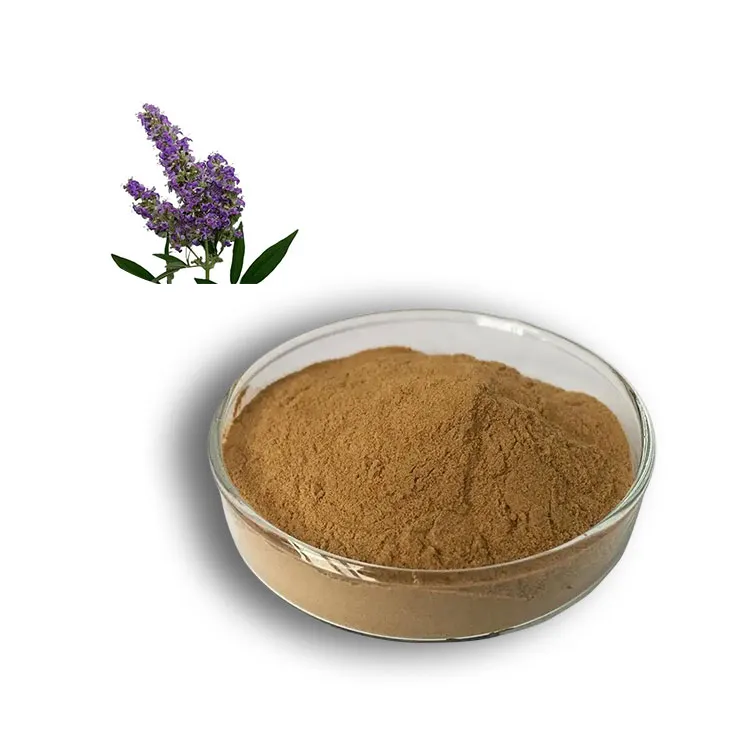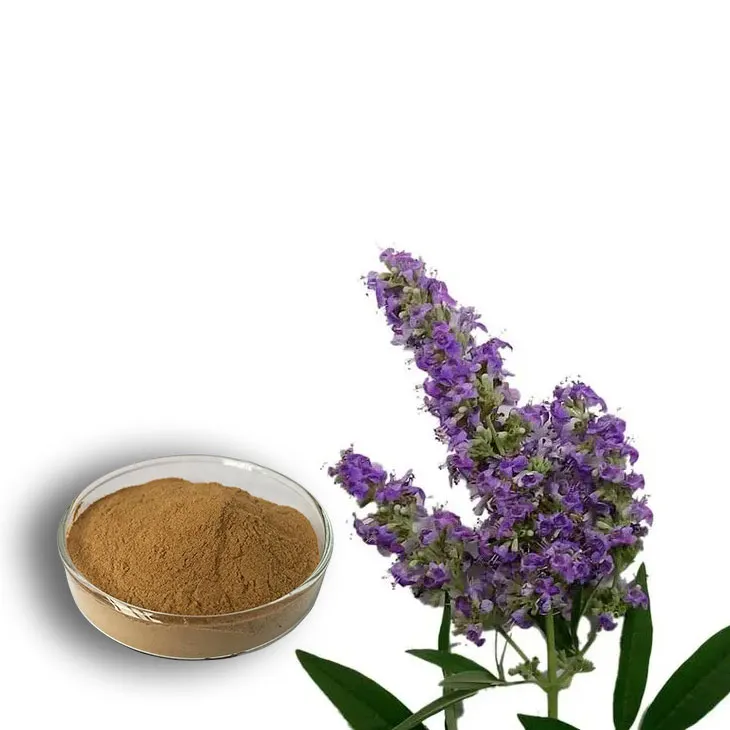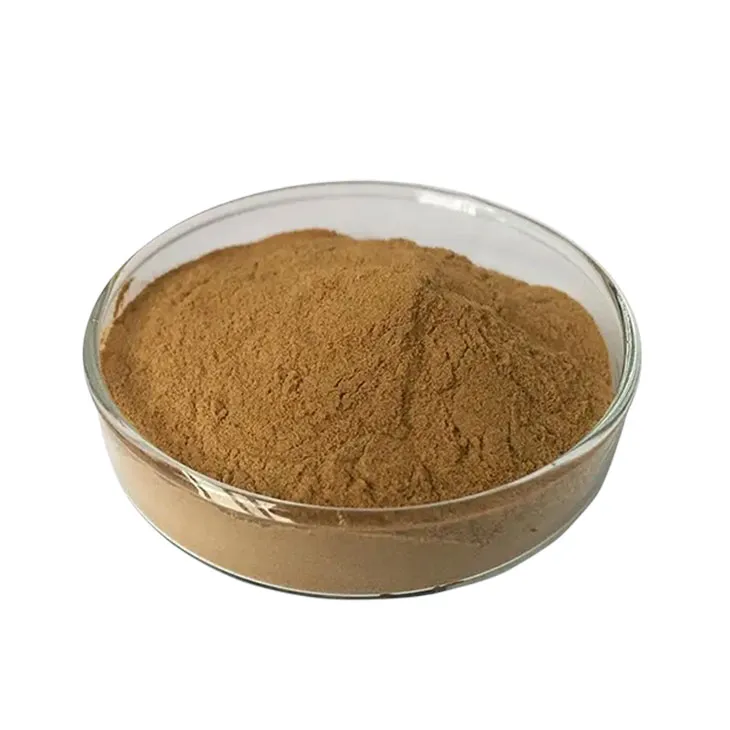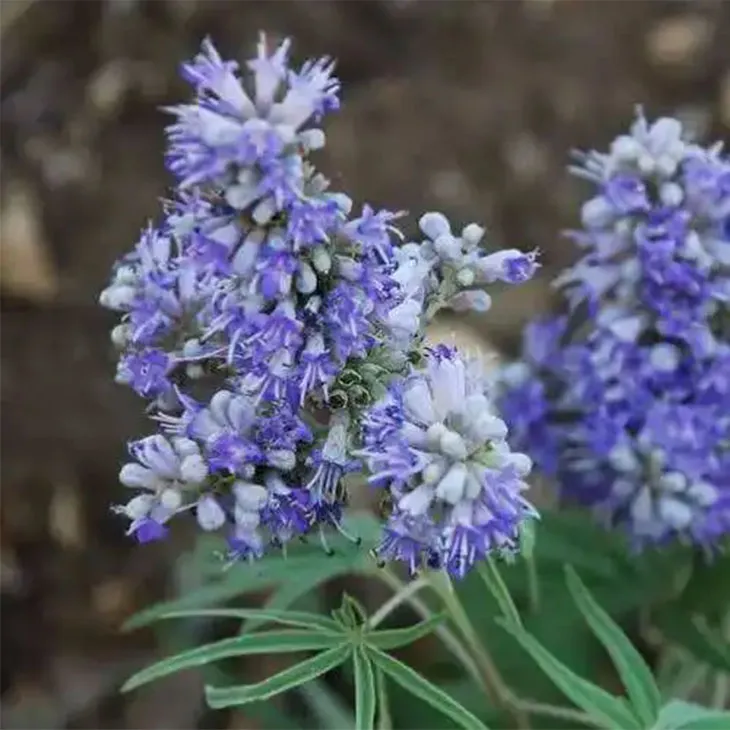- 0086-571-85302990
- sales@greenskybio.com
Does chasteberry extract have benefits for diabetes? Are these all safe and suitable for diabetic patients?
2024-11-12

1. Introduction
Diabetes mellitus is a chronic metabolic disorder characterized by hyperglycemia, which is associated with various complications and requires comprehensive management. In the search for alternative or complementary approaches to diabetes treatment, many natural substances are being investigated. Chasteberry Extract is one such substance that has drawn attention. However, before considering its use in diabetes management, it is crucial to evaluate its potential benefits as well as its safety and suitability for diabetic patients from multiple aspects.

2. Biochemistry of Chasteberry Extract
2.1 Active Compounds
Chasteberry Extract contains a variety of bioactive compounds. One of the main components is aglycone, which has been shown to have certain physiological effects. Additionally, flavonoids and diterpenes are also present in the extract. These compounds may interact with various biological pathways in the body.
2.2 Potential Mechanisms Related to Diabetes
Some of the compounds in chasteberry extract may potentially affect glucose metabolism. For example, they might influence the activity of insulin - sensitive cells. It is hypothesized that the extract could enhance the sensitivity of cells to insulin, which is a key factor in diabetes management. Insulin resistance is a common problem in type 2 diabetes, and substances that can improve insulin sensitivity are of great interest. Another possible mechanism is related to the regulation of certain hormones involved in glucose homeostasis. However, these mechanisms are still largely based on theoretical speculation and in - vitro studies, and further in - vivo and clinical research is needed to confirm them.

3. Clinical Evidence
3.1 Small - scale Clinical Trials
There have been some small - scale clinical trials investigating the effects of chasteberry extract on diabetes. In a study involving a limited number of diabetic patients, some improvements in blood glucose levels were observed after a certain period of taking chasteberry extract. However, the results were not consistent across all participants. Some patients showed significant reductions in fasting blood glucose, while others had only marginal changes.
3.2 Limitations of Current Clinical Evidence
The current clinical evidence regarding chasteberry extract and diabetes has several limitations. Firstly, the sample sizes in most studies are relatively small, which may lead to inaccurate or unreliable results. Secondly, the duration of these trials is often short, and it is difficult to determine the long - term effects of the extract on diabetes. Moreover, the study designs vary widely, making it challenging to compare and draw firm conclusions from different studies. There is also a lack of standardized dosage regimens in these trials, which further complicates the evaluation of the extract's efficacy.

4. Safety Considerations
4.1 General Safety Profile
Chasteberry extract is generally considered to be relatively safe when taken in appropriate doses. In non - diabetic populations, it has been used for other purposes, such as hormonal regulation in women, with few reported adverse effects. However, this does not necessarily mean that it is completely safe for diabetic patients.
4.2 Potential Interactions with Medications
One of the major concerns regarding the safety of chasteberry extract for diabetic patients is its potential interactions with diabetes medications. Diabetic patients often take medications such as metformin or insulin. Chasteberry extract may interact with these medications, either enhancing or reducing their efficacy. For example, if it enhances the hypoglycemic effect of medications, it could lead to an increased risk of hypoglycemia, which is a serious complication. On the other hand, if it reduces the efficacy of medications, it could result in poor blood glucose control.
4.3 Allergic Reactions and Side Effects
Although rare, some individuals may experience allergic reactions to chasteberry extract. Symptoms of allergic reactions may include skin rashes, itching, or swelling. In addition to allergic reactions, there may be other side effects. Some patients have reported mild gastrointestinal discomfort, such as nausea or abdominal pain, after taking chasteberry extract. However, the frequency and severity of these side effects are not well - established, especially in the context of diabetes.

5. Individual Differences
5.1 Genetic Factors
Genetic factors can play a significant role in how an individual responds to chasteberry extract. Different genetic profiles may determine the metabolism and efficacy of the extract. For example, some genetic variants may affect the way the body processes the bioactive compounds in the extract, leading to differences in its effects on glucose metabolism. Genetic factors may also influence the likelihood of developing adverse reactions to the extract.
5.2 Underlying Health Conditions
Diabetic patients often have other underlying health conditions, such as cardiovascular disease or kidney problems. These co - existing conditions can impact the safety and effectiveness of chasteberry extract. For patients with kidney problems, the excretion of the extract or its metabolites may be affected, potentially leading to a build - up of substances in the body. In patients with cardiovascular disease, the extract's effects on blood pressure or lipid metabolism may interact with their existing medications or conditions, requiring careful consideration.
6. Conclusion
In conclusion, while there are some theoretical and preliminary clinical indications that chasteberry extract may have potential benefits for diabetes, the current evidence is far from conclusive. The safety and suitability of chasteberry extract for diabetic patients are also not fully established. Given the potential interactions with medications, possible side effects, and individual differences, it is not advisable for diabetic patients to use chasteberry extract without medical supervision. Further research is urgently needed, including larger - scale and long - term clinical trials, to better understand the effects of chasteberry extract on diabetes and its safety in diabetic patients.
FAQ:
What is chasteberry extract?
Chasteberry extract is obtained from the fruit of the chaste tree (Vitex agnus - castus). It has been traditionally used for various health purposes in some cultures.
How could chasteberry extract potentially benefit diabetes?
Some studies suggest that chasteberry extract may have effects on hormonal regulation. In diabetes, it might play a role in insulin sensitivity improvement. It could potentially influence certain hormones related to metabolism, which may in turn affect blood glucose levels. However, more research is needed to fully understand these mechanisms.
Are there any clinical trials on chasteberry extract for diabetes?
As of now, there are only a limited number of clinical trials specifically focused on the use of chasteberry extract for diabetes. Some small - scale studies have shown some promising results regarding its effect on blood sugar control, but the evidence is not yet conclusive.
What are the possible risks of using chasteberry extract for diabetic patients?
Chasteberry extract may interact with medications. For diabetic patients who are on other drugs, such as hypoglycemic agents, there is a risk of altered drug effectiveness. Also, some people may experience side effects like gastrointestinal discomfort, although these are not very common.
Is chasteberry extract suitable for all diabetic patients?
No. Due to individual differences in health status, age, and concurrent medical conditions, chasteberry extract may not be suitable for all diabetic patients. For example, patients with a history of hormonal disorders or those who are pregnant or breastfeeding should be especially cautious.
Related literature
- The Potential of Chasteberry Extract in Metabolic Disorders: A Review"
- "Chasteberry and its Bioactive Compounds: Implications for Diabetes Management"
- "Clinical Evidence on the Use of Chasteberry Extract in Diabetic Patients"
- ▶ Hesperidin
- ▶ citrus bioflavonoids
- ▶ plant extract
- ▶ lycopene
- ▶ Diosmin
- ▶ Grape seed extract
- ▶ Sea buckthorn Juice Powder
- ▶ Beetroot powder
- ▶ Hops Extract
- ▶ Artichoke Extract
- ▶ Reishi mushroom extract
- ▶ Astaxanthin
- ▶ Green Tea Extract
- ▶ Curcumin Extract
- ▶ Horse Chestnut Extract
- ▶ Other Problems
- ▶ Boswellia Serrata Extract
- ▶ Resveratrol Extract
- ▶ Marigold Extract
- ▶ Grape Leaf Extract
- ▶ blog3
- ▶ Aminolevulinic acid
- ▶ Cranberry Extract
-
Organic Tongkat Ali extract powder factory.
2024-11-12
-
How to make powder with ashwagandha extract.
2024-11-12
-
Rosehip extract manufacturers from China.
2024-11-12
-
The best cat's claw extract in nature.
2024-11-12
-
Chinese Dandelion Leaf Extract Suppliers.
2024-11-12
-
Black Rice Extract
2024-11-12
-
Wheat Germ Extract
2024-11-12
-
Resveratrol extract
2024-11-12
-
Senna Leaf Extract
2024-11-12
-
Tamarind extract powder
2024-11-12
-
Calendula Extract
2024-11-12
-
Scutellaria Extract
2024-11-12
-
Fig Extract
2024-11-12
-
Saponin Extract
2024-11-12
-
Panax Ginseng Leaf Extract
2024-11-12





















